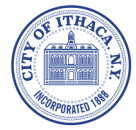Our impact
Each time Big Brothers Big Sisters pairs a child with a role model, we start something incredible: a one-to-one relationship built on trust and friendship that can blossom into a future of unlimited potential. And thanks to the first-ever nationwide impact study of a mentoring organization, we have the facts to prove it.
The study
Public/Private Ventures, an independent Philadelphia-based national research organization, looked at over 950 boys and girls from eight Big Brothers Big Sisters agencies across the country selected for their large size and geographic diversity. This study, conducted in 1994 and 1995, is widely considered to be foundational to the mentoring field in general and to Big Brothers Big Sisters Community-Based program in particular.
Approximately half of the children were randomly chosen to be matched with a Big Brother or Big Sister. The others were assigned to a waiting list. The matched children met with their Big Brothers or Big Sisters about three times a month for an average of one year.
Researchers surveyed both the matched and unmatched children, and their parents on two occasions: when they first applied for a Big Brother or Big Sister, and again 18 months later.
Approximately half of the children were randomly chosen to be matched with a Big Brother or Big Sister. The others were assigned to a waiting list. The matched children met with their Big Brothers or Big Sisters about three times a month for an average of one year.
Researchers surveyed both the matched and unmatched children, and their parents on two occasions: when they first applied for a Big Brother or Big Sister, and again 18 months later.
The results
Researchers found that after 18 months of spending time with their Bigs, the Little Brothers and Little Sisters, compared to those children not in our program:
• are more confident
• are more likely to steer clear of drugs and alcohol
• do better in school.
• get along better with their family and friends
• feel better about themselves
• are more confident
• are more likely to steer clear of drugs and alcohol
• do better in school.
• get along better with their family and friends
• feel better about themselves
Local results
In monitoring activities conducted by, and for, the Youth Development Division of the Ithaca Youth Bureau in 2006, One-to-One BBBS found that children spending time with their Big Brother or Sister felt more confident, developed competencies relevant to success in family, school and community, and exhibited a caring attitude toward others. Most importantly, their actions were indicative of those findings.
• 83% showed improvement in their self-confidence
• 78% showed improvement in their ability to express feelings
• 73% showed improvement in showing trust
• 65% showed improvement in their ability to make decisions
• 64% showed improvement in their relationship with adult
• 61% showed improvement in pursuing interests and hobbies
• 56% showed improvement in their relationship with peers
• 48% showed improvement in their sense of the future
• 83% showed improvement in their self-confidence
• 78% showed improvement in their ability to express feelings
• 73% showed improvement in showing trust
• 65% showed improvement in their ability to make decisions
• 64% showed improvement in their relationship with adult
• 61% showed improvement in pursuing interests and hobbies
• 56% showed improvement in their relationship with peers
• 48% showed improvement in their sense of the future


